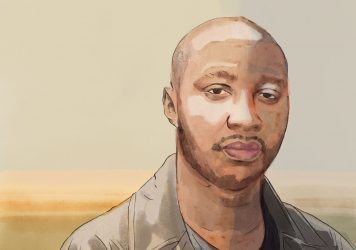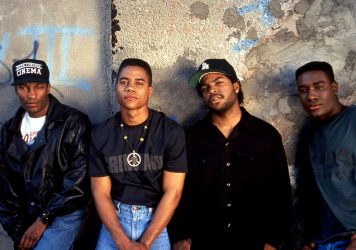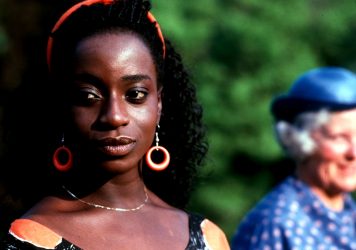Shola Amoo’s coming-of-age drama offers an important perspective on the black British experience.
The concept of being uprooted – be it literally or metaphorically – lies at the heart of Shola Amoo’s The Last Tree. Femi, an 11-year-old British-Nigerian boy, has a peaceful life in the idyllic Lincolnshire countryside, where he lives with his white foster mother Mary.
He whiles away the hours exploring the seemingly endless lush fields which surround his home, until his birth mother returns and he moves into her flat in inner-city London. Finding himself transposed to a grey and noisy housing estate and at odds with a parent he doesn’t really know, Femi struggles to adapt, as well as make sense of warring elements of his identity.
Amoo demonstrates a knack for immersing us in Femi’s senses, in particular his use of sound creates the feeling of stimulation overload – every breath, every footstep, even water, trickling into a bowl. Jumping forward five years, newcomer Sam Adewunmi captures Femi’s anger but also his loneliness, and a desperate sense of confusion as he’s caught between the conflicting desires to forge his own path or fit in with his family and friends.
Focussing on black masculinity and the struggle to pull away from darkness when you’ve spent your whole life fighting, Amoo’s film speaks to his personal experience as a British-Nigerian grappling with diaspora, offering a brief insight into Yoruba spirituality towards the end of the film, when Femi goes in search of his absentee father.
It’s a shame this is only a small part of the story, as The Last Tree is at its best when grappling with elements which feel fresh, including the depiction of Femi’s complex relationship with his mother. Even so, Amoo’s second feature and Sam Adewunmi’s confident debut performance firmly establish them both as talents to watch.
Published 25 Sep 2019
Enjoyed Shola Amoo’s confident debut A Moving Image.
The setting feels a little dated, but Sam Adewunmi is great in the lead.
A sensitive portrait of a complex childhood that occasionally veers toward cliché.

The British-Nigerian filmmaker on his intimate portrait of black masculinity, The Last Tree.

John Singleton and Barry Jenkins’ films understand what it means to grow up young, black and American.

By Nadia Latif
A recent conference highlighted the urgent need to promote diversity across the UK industry.